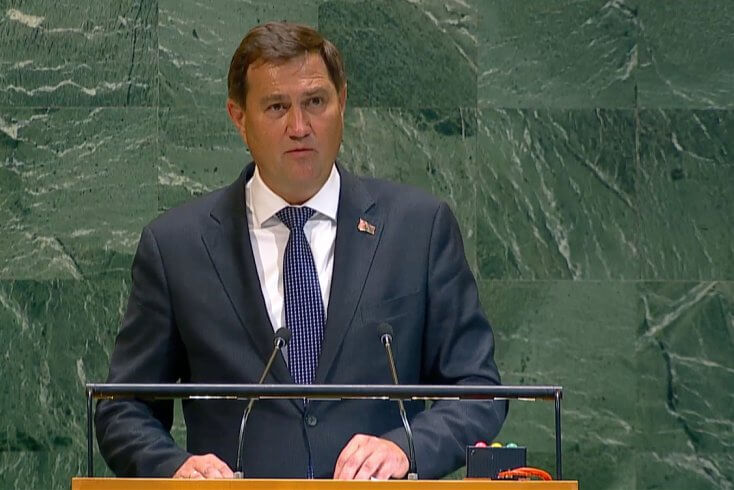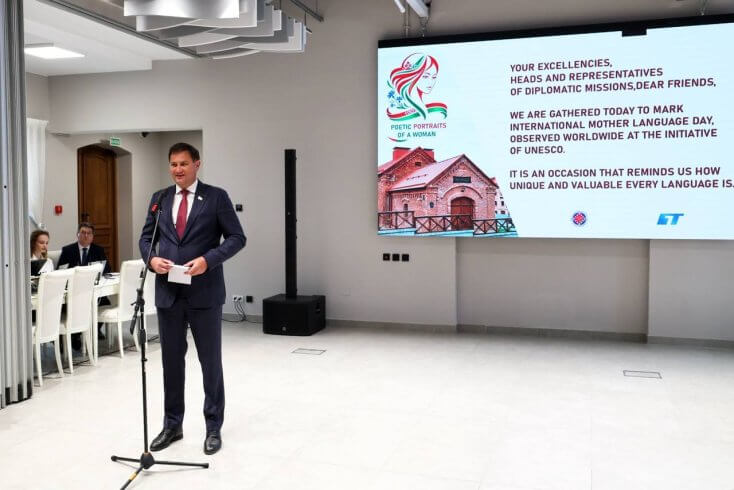Belarus’ deputy economy minister sounds alarm over emigration

May 30, Pozirk. Taćciana Brancevič, a deputy economy minister, has described a massive skilled labor outflow from Belarus as a strategic challenge.
More than 500,000 people have left the country since 2020 fearing political reprisals and for economic reasons, experts estimate.
Belarus should give priority to retaining skilled workers, and even better, to encouraging emigrants to return, rather than attract low-skilled labor force from other countries, Brancevič told the country’s biggest state-controlled newspaper SB.Belarus Segodnia, stressing that the country needs skilled labor for an economic breakthrough.
She noted that it takes long and a great financial and “moral” effort to integrate migrants from “far-away regions” into the new cultural environment.
“We have unique labor resources,” she said. “Our people are educated, hardworking, tolerant, law-abiding and diligent. And our European neighbors do not really want to see guests from Africa and the Middle East in their countries, but keep the door wide open for Belarusians.”
Corporations engage in headhunting “along a wide front and geography” and hire Belarusian engineers and researchers, she said, noting that banks and trading companies in Belarus already face shortages of decision-making personnel.
Brancevič noted an outflow of skilled workers to Russia, whose businesses offer higher salaries and incentives.
“For instance, Saint-Petersburg runs programs to close vacancies with migrant workers who are offered housing, salaries and other incentives,” she said, noting that Belarusians are given preference because of “their mentality, the lack of a language barrier, a very close culture and uniform laws in the framework of the Union State.”
About 500,000-600,000 Belarusians left their country after the 2020 presidential election by January 2024, Hiennadź Koršunaŭ, a social scientist and former director of the National Academy of Sciences’ Institute of Sociology, concluded in early May in his study for the Center for New Ideas.
Koršunaŭ studied available data from countries that shelter Belarusians. After 2020 about 120,000 Belarusian nationals settled down in Poland, 50,000 in Lithuania, 8,000 in Germany and 25,000 in other EU countries. In addition, 11,000 Belarusians moved to Georgia and 5,000 to Israel.
The scientist noted that Russia was probably the main destination but it was “almost impossible” to determine the number of people who have gone to Russia.
“Even official bodies can give very different figures on the number of Belarusians working in the Russian Federation in the same timeframe. For example, there can be significant gaps in the data for 2022: the Eurasian Economic Commission’s department of labor migration gives the figure of 174,305 Belarusians, while the Russian Interior Ministry’s Main Department of Migration gives 430,000.
“The only thing that can be said more or less confidently: emigration from Belarus to the east can be quite comparable with the west,” he noted.
The total number of emigrants, 500,000-600,000, is about 6-7 percent of Belarus’ population, Koršunaŭ said.
Also read: About 500,000-600,000 have left Belarus after 2020 election – sociologist
- Politics
- Politics, SecurityPoland detects undocumented migrants after 30 days without incidents during cold spellThe material is available only to POZIRK+
- PoliticsBelarus’ foreign minister attends cultural event in Minsk instead of Board of Peace in WashingtonThe material is available only to POZIRK+
- Politics, Security
- PoliticsCichanoŭskaja seeks comprehensive solutions for Belarusian victims living in EUThe material is available only to POZIRK+
- Łukašenka pardons pregnant woman sentenced for donationsThe material is available only to POZIRK+
- SocietyFormer agriculture minister accused of taking $1.5-million bribeThe material is available only to POZIRK+
- Politics
- PoliticsOpposition leader encourages OSCE to play key role in resolving Belarus’ political crisisThe material is available only to POZIRK+
- Economy, PoliticsŁukašenka proposes Mozambique port to boost Zimbabwe’s tradeThe material is available only to POZIRK+
- Politics, SecurityRising foreign military budgets spark concern in Belarus – officialThe material is available only to POZIRK+
- Economy
- EconomyHousing construction plunges 37.5 percent in JanuaryThe material is available only to POZIRK+
- Politics, SecurityDefense official: Minsk aims to restore “constructive cooperation” with US, EUThe material is available only to POZIRK+
- SocietyLithuanian border guards intercept stolen SUV heading to BelarusThe material is available only to POZIRK+
- Politics, SecurityDefense ministry to brief foreign military attachésThe material is available only to POZIRK+
- Politics
- PoliticsReprisals: four in Minsk imprisoned over links to solidarity initiativeThe material is available only to POZIRK+
- EconomyOnly Brest and Hrodna regions report GDP growth in JanuaryThe material is available only to POZIRK+
- Politics, SecurityLithuania complains to ICAO about balloon incursions from BelarusThe material is available only to POZIRK+



